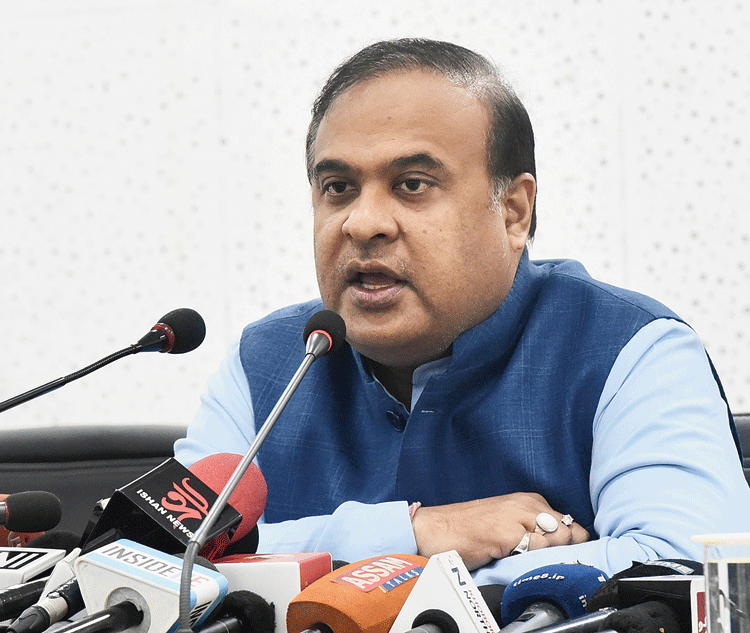North East Democratic Alliance convener Himanta Biswa Sarma on Tuesday appealed to Ulfa (Independent) and Manipur militant groups to join the peace process.
Appealing to Ulfa (I) chief Paresh Barua and Manipur outfits to come to the negotiating table for the sake of “permanent peace in the Northeast”, Sarma, who is a senior Assam minister, said Union home minister Amit Shah had, during a discussion with him on Monday, clearly expressed the Centre’s willingness to talk to Ulfa (I) if it is ready for negotiations.
The major rebel groups in Manipur included the United National Liberation Front (UNLF), Kangleipak Communist Party (KCP), People’s Revolutionary Party of Kangleipak (Prepak), Revolutionary People’s Front (RPF, the political wing of the People’s Liberation Army) and United National United Peoples Party of Kangleipak (UPPK). UNLF chief ) Rajkumar Meghen, alias Sanayaima, was released after serving his sentence in November.
The peace offer came a day after the government sealed a “historic” Bodo peace deal, signed by all stakeholders, including four NDFB factions, the All Bodo Students’ Union and the Bodoland Territorial Council, and two days after the Ulfa (I) claimed responsibility for five serial blasts in Upper Assam on Republic Day.
Sarma said, “This is the first time that this government is making a public appeal to Ulfa (I) for dialogue. If they are willing for negotiations, the Centre will reciprocate with equal respect to bring permanent peace in Assam and the region.”
Terming the decision of the Bodo militant groups to join the peace talks as “mature”, Sarma said all other militant outfits should shun violence and join the mainstream.
“Almost all the militant outfits in the northeastern states, barring some in Assam and Manipur, are holding peace talks. Hereby, I would like to request Barua and Ulfa (I) to consider engaging in a productive dialogue,” he said.
Ulfa was formed in 1979 with the objective of restoring Assam’s sovereignty. In June 2008, two companies of Ulfa’s 28 battalion announced the first unilateral ceasefire. Subsequently, the outfit’s top leadership was flushed out from Bangladesh and arrested in India. They joined the peace negotiation with the Centre in 2011.
Ulfa (I) was formed in 2012. Attempts have been made in the past to bring Barua to the talks table but his insistence on discussing “Assam’s sovereignty”, the Ulfa (I)’s main demand, has emerged as the main hurdle.
In November 2019, Centre’s interlocutor A.B. Mathur had stated that talks with several militant outfits, including Ulfa (pro-talks), were in the final stage. The Centre-Ulfa parleys have been focusing on the group’s key demands of constitutional safeguard of the rights and identity of the indigenous people of Assam, an honourable solution to the three decades of armed conflict, addressing the problem of illegal migration from Bangladesh and details of the whereabouts of 50 leaders and cadres reported missing from the Ulfa’s erstwhile headquarters in Bhutan during the flush-out operation launched in the neighbouring country in 2005.
Reacting to the peace talks invitation, Ulfa general secretary Anup Chetia, who joined the peace talks in 2016, told The Telegraph, “The peace talks with us has almost reached the final stage. We will be very happy if the Centre manages to bring Paresh Barua to the peace table but his absence should not hinder the ongoing process. Since our discussion has come so far, it should not be delayed waiting for Paresh Barua.”










